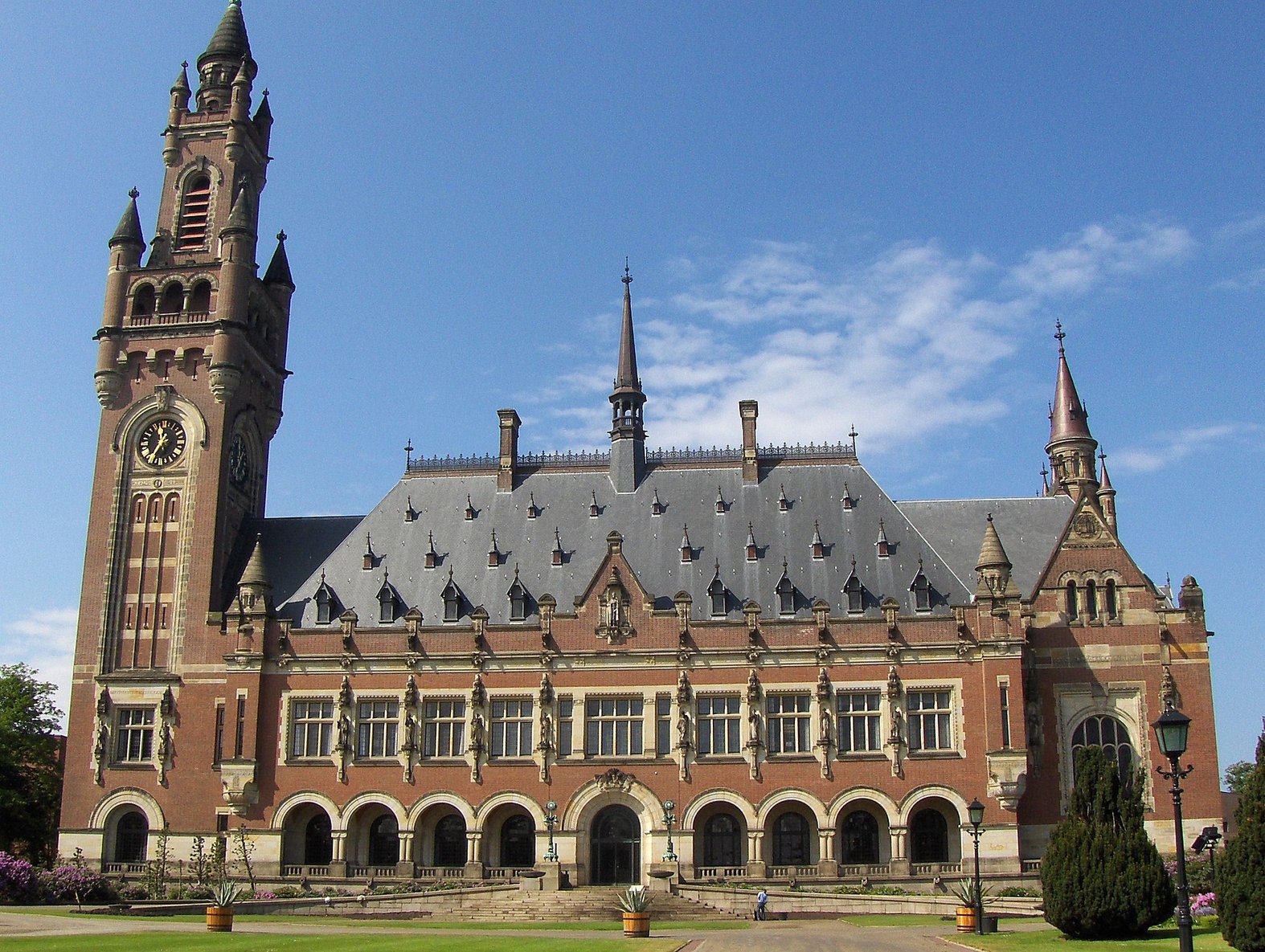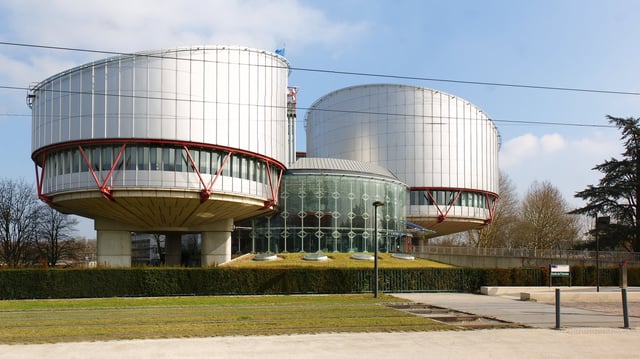
In 2019, Cynthia Houniuhi, a young Indigenous woman from the Solomon Islands and president of Pacific Island Students Fighting Climate Change, spearheaded an effort to do something plenty of legal experts and climate thought leaders said was impossible: get the highest court in the world—the International Court of Justice (ICJ)—to issue a ruling requiring countries to do something about climate change. Six years later, that effort has resulted in the most consequential climate ruling in history.
In 2023, the United Nations General Assembly formally requested an advisory opinion from the ICJ, with 96 states and 11 international organizations participating in public hearings in 2024. Last week, the ICJ ruled that countries are responsible for protecting their citizens and local environments from climate change, and to do so they are also responsible for regulating the actions of polluting companies under their jurisdictions. The ruling, co-authored by the court’s 15 justices, was unanimous. Upon its publication, Judge Yuji Iwasawa said, "The human right to a clean, healthy, and sustainable environment is essential for the enjoyment of other human rights."
Tom Sparks, an international climate lawyer and director of the nonprofit Just Access, noted the importance of a unanimous decision. “As any regular court watcher can tell you, that’s far from usual. It gives the opinion a very significant weight,” he said.
The court ruled that the Paris Agreement not only creates procedural obligations to prepare and submit Nationally Determined Contributions (NDCs), another term for climate action plans, but also that states have obligations in how they formulate their plans. Sparks noted that “highest possible ambition” and “progression” are now legal requirements and once states submit their plans, they are legally obligated to pursue their best efforts to actually meet the promises they made. “Progression” refers to countries' obligations under the Paris Agreement to continuously update and enhance ambition in their NDCs submitted every five years.
And if states fail to take action to protect the climate system from greenhouse gas emissions, the court established a pathway for reparations by stating that such failure may constitute “an internationally wrongful act.” Additionally, the court said that any state (and not just injured states) could invoke another state’s responsibility for failure to take appropriate climate action.
Another noteworthy ruling was that states that are not party to climate treaties like the United Nations Framework Convention on Climate Change (UNFCCC) and the Paris Agreement are nevertheless obligated to meet their share of climate action under customary international law. This means that the United States is legally obligated to cut emissions and provide climate finance even if Republican leadership withdraws from climate treaties.
The court also said it considers 1.5°C to be “the primary temperature goal for limiting the global average temperature increase under the Paris Agreement.” This is a more complicated statement than it might appear to be. On the one hand, the ruling could lay the groundwork for holding governments accountable for ensuring that the world will not meet this target, which most leading climate scientists agree is impossible given the delay.
Dr. Alaa Al Khourdajie, Research Fellow at Imperial College London and an IPCC lead author said "By identifying 1.5°C as the primary temperature goal, the Court has strengthened its importance despite the inevitable overshoot, thereby strengthening the potential legal obligation to return to 1.5°C after exceedance.” Dr Alaa was part of a team that assisted the ICJ in understanding key findings from IPCC reports about impacts of climate change. Crucially, he added, this anchors climate finance and loss and damage mechanisms to the 1.5°C target more strongly than ever before. "In my view, this is important as it counters potential arguments that such financing becomes redundant once overshoot appears inevitable or that returning to 1.5°C is merely a burden for future generations."
On the other hand, some climate lawyers are concerned that it codifies a target that is not nearly ambitious enough. “I can’t think of another legal situation where a lawyer would go into court and ask for a political compromise instead of what their client actually needs,” Julia Olson, lead counsel for Our Children’s Trust said. In this case, the ideal target would be no additional warming. “As a lawyer, you always ask for as much as possible, knowing that you’re probably going to get a compromise. You don’t start with the compromise! And the fact that this is continuously getting baked into precedent and codified makes it increasingly difficult to change.”
Nevertheless, the ICJ ruling provides teeth to climate agreements. It could impact multiple cases currently underway, make commitments made under the Paris Climate Agreement legally binding, and finally provide citizens and governments with a tool to deal with the very industry-friendly Investor-State Dispute Settlement (ISDS) system. In fact, Judge Cleveland noted in her declaration that states’ climate obligations must inform interpretations of international investment law. This is significant considering that so far, about 72% of ISDS cases were decided in favor of fossil fuel investors.
Implications on investment treaties
Trade agreements and bilateral investment treaties have historically included clauses that require governments to submit to arbitration proceedings should a corporation file an investor-state dispute claim against them. These claims have frequently been used by extractive industries to punish governments for passing environmental or human rights legislation, creating a chilling effect particularly on Global South countries where governments worry that even if they win, such proceedings could drain national coffers.
Global North countries are not immune either, though. When the U.S. government canceled the permit for the Keystone XL pipeline, after years of grassroots organizing and protest against it, Canadian pipeline company TransCanada filed a $15 billion claim against the U.S. That claim was ultimately unsuccessful, but that was a relatively unusual outcome; arbitration panels often rule in favor of corporations bringing disputes.
To date there has been little governments can do to blunt the impact of this system; even when they withdraw from treaties that require it, they are subject to it for several years. The government of Ecuador had withdrawn from treaties binding it to arbitration for seven years before Chevron was able to invoke one of them to file a dispute against the country for allowing what Chevron deemed to be a fraudulent legal case to proceed against it. Chevron won that dispute and Ecuador is still on the hook to pay the multinational oil giant more than $1 billion in compensation. The ICJ ruling gives states powerful legal protections against such claims, providing a legal framework for balancing investor protections with the imperative to protect citizens from climate change; if they are legally obligated to act on climate change, laws they pass to reduce emissions or limit permits to extractive industry are suddenly cast in a different light.
A boost to climate litigation
Climate litigators and campaigners all over the globe have indicated that the ICJ ruling will not only have an impact on cases already underway, but is also likely to spur new cases. "Today’s decision shows that Switzerland is fighting a losing battle with its opposition against the ruling of the European Court of Human Rights in the KlimaSeniorinnen case,” Georg Klingler, Coordinator for the KlimaSeniorinnen, often referred to as the “Swiss grannies case,” for Greenpeace Switzerland. “This decision will energize new campaigns that build people’s power and strengthen the growing wave of climate litigation."
Changmin Choi, Attorney at Plan 1.5 and Counsel for the Youth Climate Case against South Korea, explained that last year, the Korean Constitutional Court demanded that South Korea must set a national emissions reduction target in line with scientific facts and international standards. “This Advisory Opinion from the world’s highest court will strengthen the implementation of last year's decision, aligning South Korea’s 2035 national climate plan and its long-term reduction pathway with its fair share,” he said.
“All actors, including large multinational companies are affected by ICJ 's opinion,” Jérémie Suissa, General Delegate at Notre Affaire à Tous, the legal team behind L’Affaire du Siècle, said. “The legal risks will now increase significantly in every country in the event of continued climate inaction.”
“The Court has confirmed—and I hope once and for all—that there is a human right to a clean, safe, healthy, and sustainable environment,” Sparks, from Just Access, added. “That's going to really spur litigation on climate change at other levels, and so mobilize the power of domestic and regional courts even more.”
The elephant in the room here is the United States, which is tearing down any apparatus that had previously been built to deal with climate change, including the move this week to revoke the Environmental Protect Agency’s endangerment finding around greenhouse gas emissions. But, as they themselves have repeatedly reminded us, U.S. oil companies are not American companies, they are global: if their home country will not hold them accountable, the many countries in which they operate around the world might. And the ICJ opinion gives a tool to those seeking to hold the world’s largest polluter to date accountable, too, even after it has withdrawn from the Paris Agreement.
While the ruling is historic and will have meaningful implications in courts around the world, Sparks noted that the justices still left a few issues unaddressed. “It’s not a perfect judgment. The Court should have examined further the historical responsibility of the major emitters, and should have more clearly established whether or not those States are legally liable for their emissions prior to the UNFCCC [in 1992] and, if so, how far back. And I would have liked to see a more direct treatment of fossil fuels. But two out of three isn't bad!”



